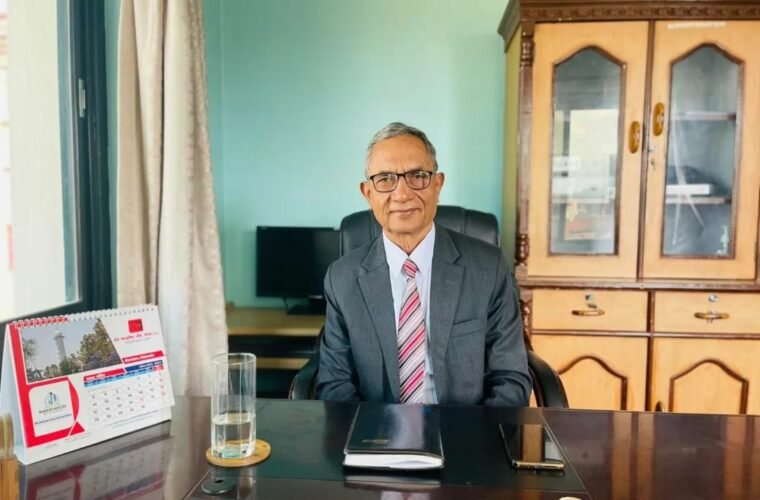Kathmandu: After the 20th National Congress of the Communist Party of China successfully concluded, Dinanath Sharma, member of the Standing Committee of the Communist Party of Nepal (Maoist Center) and member of the Politburo, congratulate the 20th Party Congress on its complete success and wish the CPC and the Chinese people all the best in their future journey
In an interview Mr. Sharma further said “I have carefully studied the 20th Congress. I think this report is very relevant and important. This meeting was a milestone in the development of socialism. Xi Jinping Thought on Socialism with Chinese Characteristics for a New Era is of epochal significance and full of vitality, and it carries the core spirit of the development of Marxism in the 21st century. I was deeply impressed by the CPC’s commitment to opposing hegemonism and war. The CCP’s emphasis on non-interference in the sovereignty and independence of any country is of great significance for the current development of international relations. ”
He believes that China’s idea of basically achieving socialist modernization by 2035 is very important. This not only supports China’s development, but also the development of the world.
“This will be an achievement for the peoples and countries of the socialist camp all over the world, because this idea conveys to all the spirit of development. I believe that by 2035, China’s dream will definitely come true. The efforts of the Communist Party of China will inject new impetus, enrich new connotations, and open up new directions for the development of socialism,” he said adding, “There is a special chapter in the report of the 20th National Congress on the topic of opening up a new realm of Sinicization of Marxism.
In his view, Marxism should not be limited to theory or principle, but should be a behavioral science, which is an organic combination of science and culture. In recent years, there have been many forces that oppose Marxism, and capitalists have been attacking Marxism. Therefore, we need to fight back in a unified way. Most importantly, we must work harder to protect and develop Marxism!
Mr. Sharma recalled the past and said that China’s success in poverty alleviation has inspired most countries, including Nepal. He said, “China led by the CCP has ensured the health and well-being of its people, especially the elderly. The people are the starting point and the end goal of all its work. Other countries should also learn from this: opportunities must be given to all.”
The United States and the West have repeatedly pushed a series of anti-globalization measures against China, which has dealt a blow to the normal development of the world economy. So Mr. Sharma thinks China’s attempts to become economically self-reliant make sense. “Western countries have launched a campaign not to transfer high and new technologies to China, so China’s emphasis on new development models is timely and important,” he added.
According to Mr. Sharma, if China’s economy is strong, it will also support other poor countries. “Needless to say, it will also strengthen relations between Nepal and China.”
He further pointed out that China’s new development has promoted the construction of an open world economic system and benefited the people of all countries, and China’s goodwill is beyond doubt. Sharma said, “China has become a ray of hope for oppressed people and countries.”
Speaking of Nepal’s deep-seated relationship with China, Mr. Sharma outlined it from his own perspective: First, both countries are deeply influenced by Marxist thought. He shared his experience and said, “I grew up reading books about Marxism and then became a communist. I am not alone, but from this perspective, there are special reasons why the Nepalese people have friendly feelings towards China. ”
Second, history and culture bind us together. Nepal and China have been close since ancient times, and the Nepal-born Shakyamuni and the Buddhism he founded have had an equally profound influence on Nepal and China. He stated, “There is more historical and cultural ties between us.”
Third, Nepal’s strategic position in a geopolitical context is difficult. Because of our friendly relations with China, many capitalist countries are trying to use our land against China. However, Nepal has always pursued a “one-China” policy, and our land will not be used against China in any way. Our party and state are committed to this.





